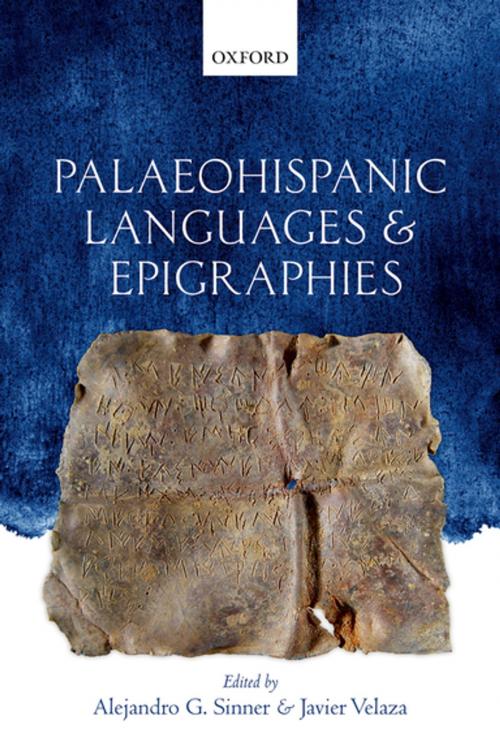Palaeohispanic Languages and Epigraphies
Nonfiction, Reference & Language, Language Arts, Linguistics, History| Author: | ISBN: | 9780192508188 | |
| Publisher: | OUP Oxford | Publication: | March 5, 2019 |
| Imprint: | OUP Oxford | Language: | English |
| Author: | |
| ISBN: | 9780192508188 |
| Publisher: | OUP Oxford |
| Publication: | March 5, 2019 |
| Imprint: | OUP Oxford |
| Language: | English |
In addition to Phoenician, Greek, and Latin, at least four writing systems were used between the fifth century BCE and the first century CE to write the indigenous languages of the Iberian peninsula (the so-called Palaeohispanic languages): Tartessian, Iberian, Celtiberian, and Lusitanian. In total over three thousand inscriptions are preserved in what is certainly the largest corpus of epigraphic expression in the western Mediterranean world, with the exception of the Italian peninsula. The aim of this volume is to present the most recent cutting-edge scholarship on these epigraphies and on the languages that they transmit. Utilizing a multidisciplinary approach which draws on the expertise of leading specialists in the field, it brings together a broad range of perspectives on the linguistic, philological, epigraphic, numismatic, historical, and archaeological aspects of the surviving inscriptions, and provides invaluable new insights into the social, economic, and cultural history of Hispania and the ancient western Mediterranean. The study of these languages is essential to our understanding of colonial Phoenician and Greek literacy, which lies at the root of their growth, as well as of the diffusion of Roman literacy, which played an important role in the final expansion of the so called Palaeohispanic languages.
In addition to Phoenician, Greek, and Latin, at least four writing systems were used between the fifth century BCE and the first century CE to write the indigenous languages of the Iberian peninsula (the so-called Palaeohispanic languages): Tartessian, Iberian, Celtiberian, and Lusitanian. In total over three thousand inscriptions are preserved in what is certainly the largest corpus of epigraphic expression in the western Mediterranean world, with the exception of the Italian peninsula. The aim of this volume is to present the most recent cutting-edge scholarship on these epigraphies and on the languages that they transmit. Utilizing a multidisciplinary approach which draws on the expertise of leading specialists in the field, it brings together a broad range of perspectives on the linguistic, philological, epigraphic, numismatic, historical, and archaeological aspects of the surviving inscriptions, and provides invaluable new insights into the social, economic, and cultural history of Hispania and the ancient western Mediterranean. The study of these languages is essential to our understanding of colonial Phoenician and Greek literacy, which lies at the root of their growth, as well as of the diffusion of Roman literacy, which played an important role in the final expansion of the so called Palaeohispanic languages.















